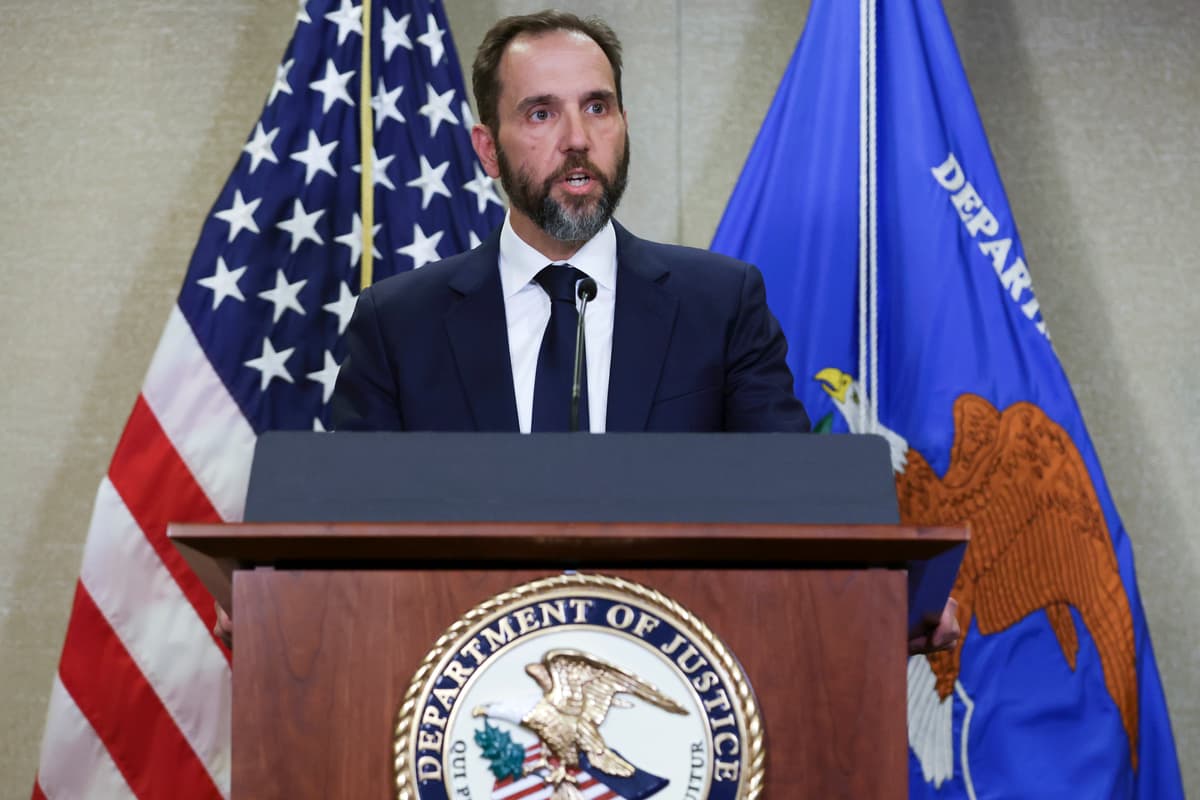Trump Denounces Jack Smith for ‘Hit Job’ as He Tries To Keep Prosecutor’s ‘Politically Motivated Manifesto’ From Becoming Public
The 45th president accuses the special counsel of crafting an ‘unprecedented filing with no legal basis’ to keep him from the White House.

President Trump’s opposition to Special Counsel Jack Smith’s immunity opus — a bout of shadowboxing over a sealed document that could sway the election — escalated on Tuesday with a request that swaths of the prosecutor’s arguments never see the light of day.
Trump argues to Judge Tanya Chutkan that “there is no basis in federal criminal procedure or the Constitution for a filing that attempts to usurp control and presentation of a defendant’s defense in a criminal case.” Mr. Smith’s case for prosecuting the 45th president was filed on Thursday, and is under seal.
Judge Chutkan is weighing how much of the book-length brief — she allowed Mr. Smith to quadruple the usual page limit — to release to the public. The special counsel has proposed his own redactions, and the former president has now weighed in. Trump calls the document a “monstrosity” and a “false hit job.”
Trump declares that Mr. Smith wants his “politically motivated manifesto to be public, contrary to the Justice Manual and longstanding DOJ norms in cases not involving President Trump, in the final weeks of the 2024 Presidential election while early voting has already begun throughout the United States.” Judge Chutkan has denied that politics will play a role in her courtroom.
The former president’s lawyers, who have read the brief, describe it as containing “few, if any, new allegations not already covered in other politically motivated and inaccurate lawfare efforts” against their client. They contend, though, that it “is irresponsible for the prosecutors to so quickly abandon the safety and privacy interests that they previously assigned great weight in this case.”
Mr. Smith has, at previous points in the prosecution, argued that much of the case — mostly witness names — ought to be redacted out of concern for their own safety. Now, it is Trump who wants the government to show “cause why their proposed public disclosure of voluminous purportedly sensitive witness statements will not pose risks to potential witnesses and unfairly prejudice the adjudication of this case.”
Trump contends that Mr. Smith’s office’s preoccupation with privacy has given way now that “public disclosure serves their politically motivated mission.” He adds that his “Constitutional rights to impartial jurors and fair proceedings—to say nothing of witness privacy and even safety—all take a back seat” to what the former president calls Mr. Smith’s “political goals.”
The 45th president maintains that Mr. Smith’s goal is “providing voters across the country immediate access to an unprecedented filing with no legal basis, which just so happens to retread false allegations against the leading candidate for the Presidency during early voting for the 2024 election.” The special counsel insists that his filing on immunity is an expeditious vehicle for Judge Chutkan to fulfill the Supreme Court’s mandate to determine the extent of Trump’s immunity in the election interference case.
Trump urges Judge Chutkan, who has consistently ruled against him and meted out harsh punishments to other January 6 defendants, to make available to Mr. Smith only “sealing relief,” meaning that the document would remain under lock and key, visible to only the jurist and the parties. Trump invokes “safety, privacy, and due process and Sixth Amendment considerations” to justify that course of action.
The Sixth Amendment ordains that in “all criminal prosecutions, the accused shall enjoy the right to … an impartial jury of the State and district wherein the crime shall have been committed.” Trump contends that the release of Mr. Smith’s brief, which contains “sensitive information,” could wound this right to an impartial jury in advance of his trial. If Vice President Harris wins the election, the prosecutor will likely have four years to pursue the case.
The schedule crafted by Judge Chutkan appears likely to exacerbate that concern, as it contemplates the document’s release sometime in late October, after she has discerned what ought to stay secret and what can be divulged to the public. Trump’s argument is that the proximity of the publication of the brief to the vote is a violation of not only his constitutional rights, but also of the Department of Justice’s own prohibition against interfering in elections.

